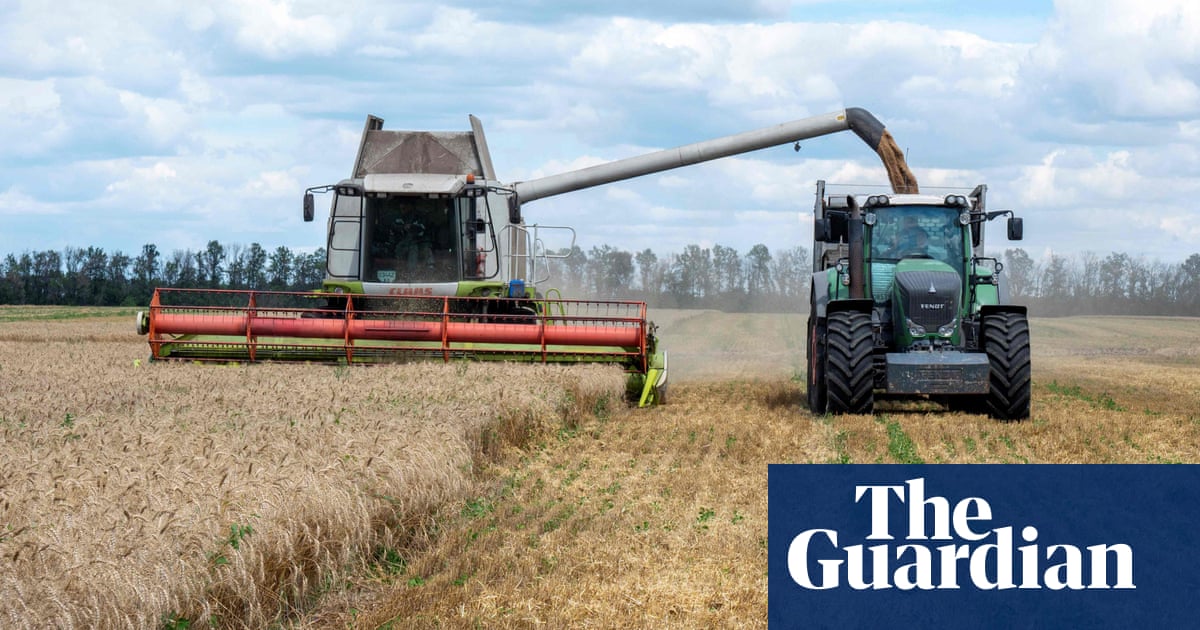Anti-vax Twitter accounts pushing food crisis misinformation, study finds

Twitter accounts that have promoted QAnon and anti-vaccine conspiracy theories are switching focus and increasingly spreading disinformation about the global food crisis caused by Russia’s invasion of Ukraine, according to a new study.
The research by the Network Contagion Research Institute (NCRI), found that conspiracy theorist social media accounts started pushing the idea that western countries are responsible for the interruption of wheat, barley and maize exports from Ukraine.
The Russian government has made the same claims in recent weeks, blaming western sanctions for a slowdown in grain exports. Russia has blocked Ukraine’s shipping ports, which has prevented the export of tens of millions of tonnes of grain. The UN has suggested 49 million people could be pushed into famine or famine-like conditions because of Russia’s actions.
The NCRI, which tracks misinformation and manipulation on social media, found that conspiracy communities and influencers linked to QAnon, the extremist conspiracy movement whose followers believe Donald Trump is waging war against the “deep state”, are shifting from conspiracy theories around Covid-19 to food crisis disinformation.
According to NCRI, the accounts frequently link rising food insecurity to a “cabal of shadowy, and often Jewish elites, for bringing about the ‘New World Order’”, rather than to Russia’s invasion of Ukraine.
In one example GhostEzra, an antisemitic QAnon social media influencer who has declared Covid “fake”, wrote on Telegram: “Never believe for one moment there’s a shortage of anything. Food. Water. Oil. They create and manufacture these shortages. These aren’t naturally occurring whatsoever.”
The “they”, the NCRI said, referred to Jewish people.
“There is a significant overlap between QAnon and other anti-vax and online conspiracy communities,” said Alex Goldenberg, lead intelligence analyst at the NCRI and a research fellow at the Rutgers Miller Center for Community Protection and Resilience.
“Some of the more colorful food-mandate conspiracies intermingle with anti-vaccine conspiracy theories.”
The NCRI, in conjunction with Rutgers Miller Center for community protection and resilience, conducted an open-source analysis of known Russian disinformation websites and spokespeople, and analyzed the use of terms around food security, mandates, and Russian-amplified conspiracies on Twitter and Telegram.
The organizations found that Russian state media and proxy media had also pushed the Kremlin line that the west is to blame. This week Sergei Lavrov, the Russian foreign minister, has been on a tour of Africa, attempting to rally support.
“If food insecurity continues to rise, we anticipate that disinformation actors ranging from Russian state media to online conspiracy communities on Telegram will exploit the situation to seed narratives intended to sow distrust in target audiences’ political systems and institutions,” Goldenberg said.
“We saw the same disinformation actors engage in this activity at the advent of the pandemic, which fueled real-world mobilizations and, at times, extremist activity.”
On 23 July, Russia signed a deal with Ukraine to allow grain exports, only to bomb the vital port of Odesa hours later.
Despite the attack, Volodymyr Zelenskiy, Ukraine’s president, said on Friday the country was ready for grain ships to depart.
Russia and Ukraine are two of the world’s largest grain exporters, and Zelenskiy has previously warned that millions of people could starve because of a Russian blockade of Ukraine’s Black Sea ports. The food shortages are expected to affect Africa in particular.
Reuters, citing UN data, reported that Eritrea, Armenia, Mongolia, Azerbaijan, Georgia, Somalia, Belarus, Turkey, Madagascar, Lebanon, Egypt and Pakistan depended on Russia or Ukraine for more than 70% of their wheat imports in 2021.

